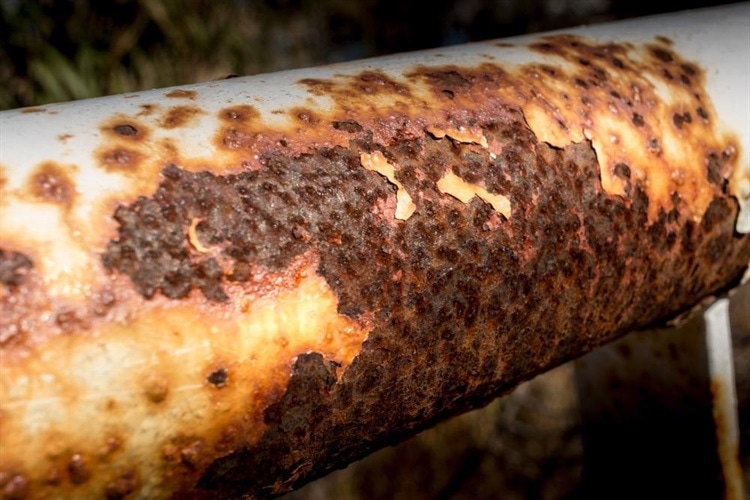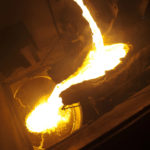The researchers used electrodeposition, chemical oxidation, and surface adjustment to create an ultra-hydrophobic Ni-Co/Cu nanocomposite lamination that can be applied on carbon steel surfaces.
Scanning electron microscope (SEM), X-ray diffraction (XRD), and water contact angle assessments were used to investigate the surface properties, structures, and wetting characteristics. Results showed that the water contact angle had increased to 158.61°, indicating an ultra-hydrophobic character.
Corrosion of Carbon Steel and How to Prevent It
Due to its decent mechanical qualities and low cost, high-strength carbon steel is frequently employed in maritime engineering. However, its low corrosion resistance in even moderate operating settings restricts its applicability.
Corrosion may reduce load-bearing capacity by lowering its overall size or by pitting, resulting in massive economic losses and accidents.
Preservative coating or lamination is the most widely used anti-corrosive technology among contemporary corrosion prevention technologies, which include cathodic shielding, anti-corrosive materials, and coating. One of the most industrially feasible and cost-effective processes for producing metallic, alloy, and metal matrix nanoscale composite coatings is electrodeposition.
Use of Nickel-Based Nanocomposites
Nickel (Ni) is a popular type of electroplating metal. Primary drawbacks of electrodeposited Ni include its poor firmness and limited resistance to wear.
Researchers have created Ni-based nanoscale composite coatings, such as Ni-CeO2 coating, to increase the performance of nickel coatings. Making numerous alloy coatings is another way to improve the performance of Ni coating. Because of its great wear and corrosion resistance, the nickel-cobalt (Ni-Co) alloy layer created via electrochemical deposition is critical for protecting carbon steel. Ni-Co alloy coatings are also more corrosion resistant than Ni coatings.
Read more: Global Coatings Resins Market Outlook & Forecasts Report 2021-2026 Featuring Leading Vendors






